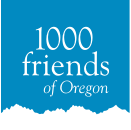Below is a list of the bills we support, along with their categories. At the bottom of this page, there is also a short list of bills we have concerns about and will be monitoring.
EQUITABLE PUBLIC INVOLVEMENT
The land use planning program’s Goal 1 is Pubic Involvement, which was ground-breaking in its time and still is in many ways; for example, no state agency, other than the Department of Land Conservation & Development, operates under a similar commitment to public involvement. However, Goal 1 has grown stale – it is not inclusive, still leaves out many segments of our fellow Oregonians who have traditionally been left out of public decision-making about their own communities, and relies on outdated communication techniques. 1000 Friends has worked with Rep. Meek to craft two bills as the first steps in improving Goal 1.
HB 2556 | Notice for All
Expands those entitled to notice of local land use decision-making. Today’s law requires that notice be mailed only to property owners, and within a short distance. Renters are excluded from those required to receive notice of land use proceedings, even land use changes that might be proposed for next door. Land use changes, especially in rural areas, can have impacts beyond the immediate vicinity.
HB 2560 | Equitable Access
Makes permanent the current COVID-related emergency/temporary requirement that all local governments provide a remote access option for local public hearings and meetings. Remote access to public hearings and meetings is an equalizer, as the in-person only nature of many meetings excludes many Oregonians, including those who do not or cannot drive, many disabled individuals, those who live far from their county seat or city hall, and who have family or school obligations that prevent them from coming in person, to name a few examples.
HOUSING & TRANSIT
HB 2558 | Linking Housing & Transit
One of the most effective ways to leverage public transit investments, increase diverse and relatively more affordable housing, reduce household transportation costs, and reduce greenhouse gas emissions is to allow more housing to be built in residential areas near fixed-route transit. This includes near light rail, streetcar, and bus rapid transit where the fixed routes provide frequent service to riders and are unlikely to significantly change. This bill does that, including an affordability bonus, creating a win-win for more livable communities.
HB 2918 | Surplus Public Lands
Directs state agencies and mass transit and transportation districts to prepare and submit to DLCD a list of surplus real property. This way, nonprofit affordable housing providers have much earlier knowledge of public lands that could be sold, enabling them to evaluate their potential for affordable housing.
HB 2583 | Prohibits Housing Occupancy Limits
Prohibits establishing occupancy limits on residential dwellings, thereby opening up housing options.
Other Affordable Housing Bills
We expect we will be supporting other legislation, still being developed, to make it easier to site affordable housing inside urban growth boundaries, and to increase homeownership opportunities for middle housing.
WORKING LANDS
HB 2785 | Meat Processing
Directs Department of Agriculture to establish a grant program to fund upgrades to establishments expected to operate under the state meat inspection program.
WILDFIRE
1000 Friends is focused on the land use and land use related tools that are part of addressing wildfire recovery, preparedness, and resiliency. Here are elements we will be supporting:
- Replacement of housing lost to low-income residents of the Talent/Phoenix area with housing that is affordable, high quality, appropriate for each family size, and located in the communities where those displaced were living.
- Other legislation related to replacing legal homes and structures lost to wildfires throughout the state.
- A state-sanctioned and maintained map of wildfire risk at the parcel level. Among other purposes, this could be incorporated into the land use planning system. Mapping layers must include the location of vulnerable populations relative to wildfire risk.
- Land use-related measures, which would be aided by the wildfire risk map.
GOVERNOR'S RECOMMENDATIONS
We support several elements of Gov. Brown’s recommended budget:
- Creation of the Office of Environmental Justice, in the Department of Environmental Quality (DEQ), to coordinate interagency efforts related to environmental justice, through data collection, policy development and community engagement.
- Continued funding for DLCD and cities to increase middle housing opportunities and housing affordability at every income level.
- Funding to incorporate environmental justice analysis measures in land use decisions within DLCD’s current processes.
BILLS 1000 FRIENDS HAS CONCERNS ABOUT
Several bills allow more uses and homes on farm and forest land that are not even related to farming or forestry, and instead add to the existing conflicts that are making it harder & harder for those who grow our food and fiber to stay in business. And at least one bill seeks to limit the ability of Oregonians to participate in land use decision-making. Here are a few:
- SB 16: Allows houses on up to 200 acres of EFU land in Eastern Oregon Border Region, which could result in up to 100 houses on 2 acres sites.
- HB 2735: Allows dwellings not needed for farming or forestry on exclusive farm and forest lands.
- HB 2763: Expands allowances of “cideries” on exclusive farm use lands, to those producing under 100,000 gallons if the business owns at least 1 acre of orchards.
- SB 359: Allows an additional house on land zoned for exclusive farm use if the farm has been owned by the same family for at least 100 years.
- HB 2764: Limits standing in land use appeals to persons living or owning a business within 25 miles of the local government or special district in which land use application is filed, and who appears locally in the proceeding.
